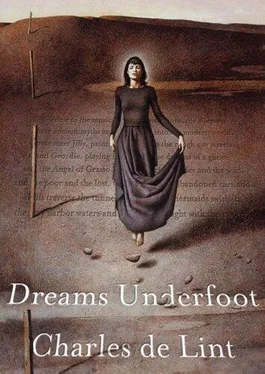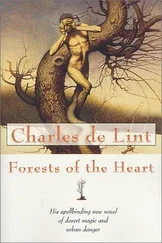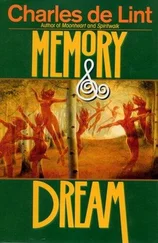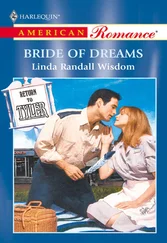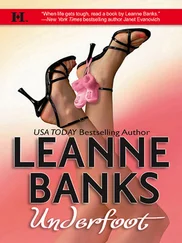I wanted more than just the nights, I’ll admit freely to that, but not enough to risk losing what I had. I was like the wife in “Bluebeard,” except I refused to allow my curiosity to turn the key in the forbidden door. I could have followed her, but I didn’t. And not just because I was afraid of her vanishing on me. It was because she trusted me not to.
We made love three times, all told, every time in that old sleeping bag of hers, each time in a different place, each morning I woke alone. I’d bring back her sleeping bag when we met that night and she’d smile to see its bulk rolled under my arm.
The morning after the first time, I realized that I was changing; that she was changing me. It wasn’t by anything she said or did, or rather it wasn’t that she was making me change, but that our relationship was stealing away that sense of distancing I had carried with me through my life.
And she was changing, too. She still wore her jeans and leather jacket most of the time, but sometimes she appeared wearing a short dress under the jacket, warm leggings, small trim shoes instead of her boots. Her face kept its character, but the tension wasn’t so noticeable anymore, the toughness had softened.
I’d been open with her from the very first night, more open than I’d ever been with friends I’d known for years. And that remained. But now it was starting to spill over to my other relationships. I found my brother and my friends were more comfortable with me, and I with them. None of them knew about Tally; so far as they knew I was still prowling the nocturnal streets of the city in search of inspiration.
They didn’t know that I wasn’t writing, though Professor Dapple guessed.
I suppose it was because he always read my manuscripts before I sent them off. We had the same interests in the odd and the curious—it was what had drawn us together long before Jilly became his student, before he retired from the university. Everybody still thought of him as the Professor; it was hard not to.
He was a tiny wizened man with a shock of frizzy white hair and gasses who delighted in long conversations conducted over tea, or if the hour was appropriate, a good Irish whisky. At least once every couple of weeks the two of us would sit in his cozy study, he reading one of my stories while I read his latest article before it was sent off to some journal or other. When the third visit went by in which I didn’t have a manuscript in hand, he finally broached the subject. “You seem happy these days, Christy.”
“I am.”
He’d smiled. “So is it true what they say—an artist must suffer to produce good work?”
I hadn’t quite caught on yet to what he was about.
“Neither of us believe that,” I said.
“Then you must be in love.”
1,
.
I didn’t know what to say. An awful sinking feeling had settled in my stomach at his words. Lord knew, he was right, but for some reason, just as I knew I shouldn’t follow Tally when she left me after our midnight trysts, I had this superstitious dread that if the world discovered our secret, she would no longer be a part of my life.
“There’s nothing wrong with being in love,” he said, mistaking my hesitation for embarrassment.
“It’s not that,” I began, knowing I had nowhere to go except a lie and I couldn’t lie to the Professor.
“Never fear,” he said. “You’re allowed your privacy—and welcome to it, I might add. At my age, any relating of your escapades would simply make me jealous. But I worry about your writing.”
“I haven’t stopped,” I told him. And then I had it. “I’ve been thinking of writing a novel.”
That wasn’t a lie. I was always thinking of writing a novel; I just doubted that I ever would. My creative process could easily work within the perimeters of short fiction, even a connected series of stories such as The Red Crow had turned out to be, but a novel was too massive an undertaking for me to understand, little say attempt. I had to have the whole of it in my head and to do so with anything much longer than a short novella was far too daunting a process for me to begin. I had discovered, to my disappointment because I did actually want to make the attempt, that the longer a piece of mine was, the less ... substance it came to have. It was as though the sheer volume of a novel’s wordage would somehow dissipate the strengths my work had to date.
My friends who did write novels told me I was just being a chickenshit; but then they had trouble with short fiction and avoided it like the plague. It was my firm belief that one should stick with what worked, though maybe that was just a way of rationalizing a failure.
“What sort of a novel?” the Professor asked, intrigued since he knew my feelings on the subject.
I gave what I hoped was a casual shrug.
“That’s what I’m still trying to decide,” I said, and then turned the conversation to other concerns.
But I was nervous leaving the Professor’s house, as though the little I had said was enough to turn the key in the door that led into the hidden room I shouldn’t enter. I sensed a weakening of the dam that kept the mystery of our trysts deep and safe. I feared for the floodgate opening and the rush of reality that would tear my ghostly lover away from me.
But as I’ve already said, she wasn’t a ghost. No, something far stranger hid behind her facade of pixie face and tousled hair.
I’ve wondered before, and still do, how much of what happens to us we bring upon ourselves. Did my odd superstition concerning Tally drive her away, or was she already leaving before I ever said as much as I did to the Professor? Or was it mere coincidence that she said goodbye that same night?
I think of the carryall she’d had on her shoulder the first time we met and have wondered since if she wasn’t already on her way then.
Perhaps I had only interrupted a journey already begun.
“You know, don’t you?” she said when I saw her that night. Did synchronicity reach so far that we would part that night in that same courtyard by the river where we had first met? “You know I have to go,” she added when I said nothing. I nodded. I did. What I didn’t know was
“Why?” I asked.
Her features seemed harder again—like they had been that first night. The softness that had grown as our relationship had was more memory than fact, her features seemed to be cut to the bone once more.
Only her eyes still held a touch of warmth, as did her smile. A tough veneer masked the rest of her.
“It’s because of how the city is used,” she said. “It’s because of hatred and spite and bigotry; it’s because of homelessness and drugs and crime; it’s because the green quiet places are so few while the dark terrors multiply; it’s because what’s old and comfortable and rounded must make way for what’s new and sharp and brittle; it’s because a mean spirit grips its streets and that meanness cuts inside me like a knife.
“It’s changing me, Christy, and I don’t want you to see what I will become. You wouldn’t recognize me and I wouldn’t want you to. “That’s why I have to go.”
When she said go, I knew she meant she was leaving me, not the city.
“But—”
“You’ve helped me keep it all at bay, truly you have, but it’s not enough. Neither of us have enough strength to hold that mean spirit at bay forever. What we have was stolen from the darkness. But it won’t let us steal any more.”
I started to speak, but she just laid her fingers across my lips. I saw that her sleeping bag was stuffed under the bench. She pulled it out and unrolled it on the cobblestones. I thought of the dark windows of the town houses looking into the courtyard. There could be a hundred gazes watching as she gently pulled me down onto the sleeping bag, but I didn’t care.
Читать дальше
